|
I’m always inviting people to come and join our Bible study group, but not too many accept the invitation. I ask them to come to at least one Bible class and see what it’s all about, and then they can decide to come back or if it’s not for them. Again, not very many takers. So I thought I would share a bit of a recent Bible study meeting here in this blog. If what follows is at all intriguing, if it at all piques your interest, if it gets you to asking questions, then maybe, just maybe, Bible study is for you, and maybe, just maybe, you may want to consider the possibility of coming to our next class. So let’s begin. At present, we are reading from Mark’s Gospel. It is the first Gospel, as in the oldest, but it is the second book in the New Testament. It’s pretty clear as to why scholars argue that Mark is the first Gospel, but I don’t want to get bogged down in that discussion here. And even though it is the first Gospel, Paul’s Epistles (Letters) to some of his earliest Christian communities date back a full generation earlier. I mention this because I use the “historical critical” method of biblical interpretation. The Word, as in the Word of God, is timeless, but the words used to convey that revelation are most definitely bound within a certain time period, and that time period carries with it the insight and the baggage of that author, that community and that “Sitz im Leben,” which is a technical term in German for “setting in life.” The Bible’s books, in other words, were not written in a heavenly bubble by authors in a spiritual trance. They were written by thinking and inspired authors of faith from a perspective of a particular “setting in life.” Now we are going to move from the general to the specific, and this may be a bit confusing because we lose much of the context that surrounded this particular Bible class discussion, but let’s try and plod ahead anyway. Mark uses the account of Jesus calming the storm on the sea to pose an important question for everyone who encounters Jesus: “‘Who then is this …?’” The nature miracle is important, but Mark is using it to open up a larger discussion. As it is said, sometimes we can’t see the forest for the trees. Jesus goes on to heal a foreigner, then the daughter of a synagogue leader and then again a desperate woman. This is followed by the miraculous feeding of the 5,000, and then there is another nature miracle as Jesus walks on the water. If all of this were not enough, Mark adds a summary statement that people gathered wherever Jesus went and they brought their sick to him to be healed, and all were. If we were reading this story for the first time, if we did not know the end of the Jesus story (which I’m assuming we do), we could assume that Jesus’ ministry was meeting with universal acceptance and enthusiasm and that things would end well. Whichever side of the Sea of Galilee Jesus stood upon, Jewish or Gentile, the power and presence of God were made manifest. Everyone was impressed by this Jesus from Capernaum. This carpenter. But this all begins to change at Mark 7:1. Religious officials from Jerusalem come to investigate for themselves. Prophets and Messiahs are dangerous when they don’t have the decency to first check in with the religious authorities, the establishment, and run their plans by them. Word of Jesus as a wonder-worker has seeped out of Galilee and reached the capital. The high religious leaders travel north to see for themselves what all of this commotion is about up in the hinterlands that this carpenter has instigated. A confrontation is in the making. A skirmish will be engaged to probe for weaknesses. And in this encounter something religiously radical is revealed by Jesus that will again clarify who He is and what should be at the heart of faith and religion. The Jerusalem Pharisees and scribes protest to Jesus that His followers are not maintaining the customs concerning washings. The Jerusalem authorities have traveled long and far to point out that Jesus’ disciples are not washing their hands before eating. Now this may not be hygienic, but when the authorities’ first probe is about such practices as “the washing of cups, pots and bronze kettles,” it reveals a primary orientation toward the practice of religion that is dominated by what is done rather than why it is done. These rules are Pharasaic embellishments of the Mosaic laws. In Exodus, the Jewish priests are ordered to wash ritually before coming “near the altar to minister.” (30:20). They are specifically for priests entering the sanctuary. The Pharisees, with right intention I do not doubt, demanded that all the people keep this law all of the time. Their definition of holiness was ritualistic. Their belief was that the holiness of God demanded the cleanliness of God’s people whom He encountered. The intent was pure: God permeated the entire community not only the Temple; therefore, the laws of the priests became the rules of the populace. But Jesus looked upon the preparedness to be in the presence of God in a radically different manner. Jesus calls out the Pharisees for their embellishment: “‘You abandon the commandment of God and hold to human tradition.’” These Pharasaic practices focused piety on protecting the sanctity of God as if God needed to be protected from imperfect hygiene. God is not Seinfeld’s Bubble Boy. Jesus is going to reverse and turn inside out this religious orientation. Jesus is going to call into question an entire establishment of the religion. The increasing popularity and renown of Jesus among the people who have witnessed His acts of merciful power are now going to be in conflict with the religious establishment. As this occurs, the crowds and even Jesus’ disciples grow confused: “‘Then do you [the disciples] also fail to understand?’”
Jesus explains His interpretation of piety. It does not look away from God, but it does see God from quite a different perspective as that of the establishment. Piety, says Jesus, is not defined by an increased stress on rules such as washings. Rather, piety is the distance we place between ourselves and “‘fornication, theft, murder, adultery, avarice, wickedness, deceit, licentiousness, envy, slander, pride, folly.’” These are the sorts of things that “defile” a person. Now look at that list. There are twelve items. Twelve is a biblical number symbolizing completeness. Obviously, this is not a complete list of every possible sin so its completeness must lie elsewhere. Think about what kinds of sins these are. Think about what kind of sins these are not. Each one of them deals with how we treat others. None of them deal specifically with how we interact with God. In response to the establishment’s demand for forms to be followed so that we would not offend the holiness of God, Jesus points to how we treat each other in that exact same context of piety. He’s not forgetting or ignoring God. Jesus is professing a new orientation in the faith. Jesus sees piety as flowing out from our relationship with God and defining our ethics with others: “‘It is what comes out of a person that defiles.’” Can you see how this would disturb the authorities whose religion, again with right and proper intent, was based on the practice of forms? It wasn’t washing bronze pots per se; it was that these practices kept the people ready to be in God’s presence. Then, Jesus, this carpenter from Capernaum, says these are nothing but human practices, that instead true piety before God is found in how we treat each other. This is a fundamental reorientation of religion that Jesus announces and it sets the stage for the defeat and victory of the cross. Jesus reveals that God sees His worship not only in what we do for Him directly, but what we do toward each other. Can you imagine the possible discussions we could hold in Bible study that emerge from this passage? Does church begin with the Prelude and end with the Postlude? Not for the Jesus here revealed. Should church speak out about social justice matters? If we were talking in Bible study about Mark 7, what does the text imply? Is church unnecessary? Not if it’s a form only, but what if it’s an oasis spent with Christ and community for the good of both, and as an inspiration to be Jesus’ hands, feet and voice throughout the world? These are the themes of Bible study that go well beyond retelling the stories. If you’ve made it this far in the blog, I hope you’ll go a bit further and join us for Bible study. Rev. Randy
0 Comments
Even though we are officially in summer and school summer vacations have begun, we continue to offer children and youth activities every Sunday throughout the summer. Check out the flier for each Sunday, should be fun!
This is not meant to be partisan. That is to cheapen the discussion. I appreciate the opinion that immigration needs to be regulated, but this Presidential action is much more. Horsey’s editorial cartoon quotes a particular judgment-saying of Jesus, but the Bible – the Law, the Prophets, the Gospels, the Epistles – holds a rich history of concern for the less fortunate.
Furthermore, Jesus was a rebellious sort. His teachings and lifestyle were reflections of the radical nature of God as holy, which means as other, as separated from the common human expectation. Think about the early Christian parallel He inspired between spiritual perfection and human mercy that emerges when we compare the same source material as recorded in two different ways by the Evangelists. The Matthean Jesus advises: “‘Be perfect, therefore, as your heavenly Father is perfect.’” The Lucan Jesus takes that same source and says instead: “‘Be merciful, just as your Father is merciful.’” Perfection and mercy are interchangeable. This is why it was awkward, to say the least, to hear the Attorney General quote in isolation from Romans 13 about follow the law or “incur judgment,” when he knows (I hope) that this often-misused statement is followed by “Love does no wrong to a neighbor; therefore, love is the fulfilling of the law.” The throwing around of Bible-talk debases the subject and the speaker, and verges on the sacrilegious. If the administration is serious about enacting Christian policies, then it must move beyond the practical concerns of stopping desperate human beings seeking a safer life. If the administration is serious about following the Bible, then the human logic of making illegal immigration so unappealing that even children and infants are depersonalized and used as a cudgel to beat back their parents must give way to the Christian equation of mercy as spiritual perfection. At the 2018 Tri-Conference Annual Meeting, much time was devoted to worship. We had gathered as representatives of Christ’s body, the church. The worship was to prepare and excite our spiritual selves so that we could be better in tune with the will and work of the Spirit. Music was an important and beautiful part of the worship. One of the hymns included this repeated refrain: “The world won’t get no better, no, if we just let it be. We gotta change it, just you and me.” It is agreed that illegal immigration is a problem, but it must be dealt with as a humanitarian tragedy as well. If the Bible quoting Attorney General is serious, then “we gotta change it, just you and me.” Jim Wallis is the founder of Sojourners Magazine. Speaking for people of faith, he has said that our job is not only to pull people out of the water, but to go upstream and see who or what is pushing them in. Rather than spend $70 billion on a wall (because the Mexicans never were), a more ethical plan may be to spend that kind of money upstream to fix the problem. It may not seem practical, but it sure beats Jesus huddling with children who are terrified and traumatized by our own government, and under the cloak of Bible-talk no less. It’s time to start paying closer attention to what evangelical really means.
|
NewsFaith, love and chitchat. Categories
All
Archives
June 2024
Follow
|
||||||
|
SERVICE TIMES
Sunday 9:30-10:30am Children Sunday School 9:30-10:30am Nursery care available during worship DONATE Make a single or recurring contribution by clicking here |
FOLLOW
|


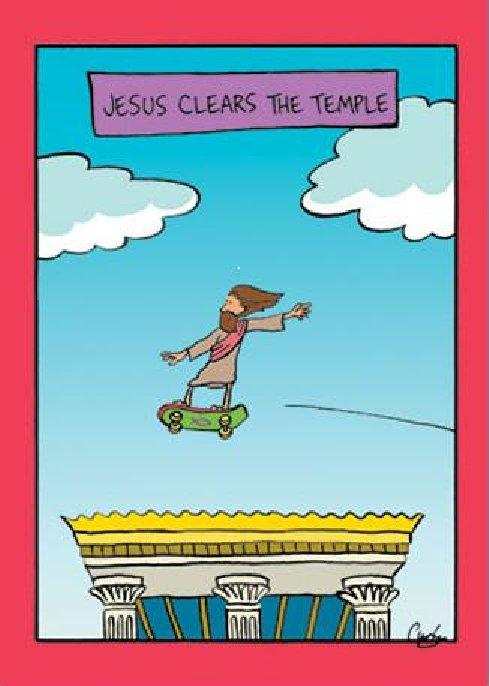



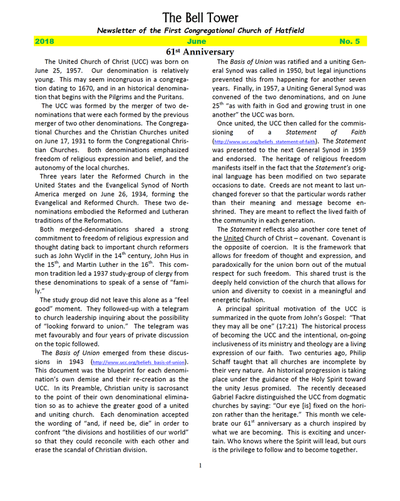
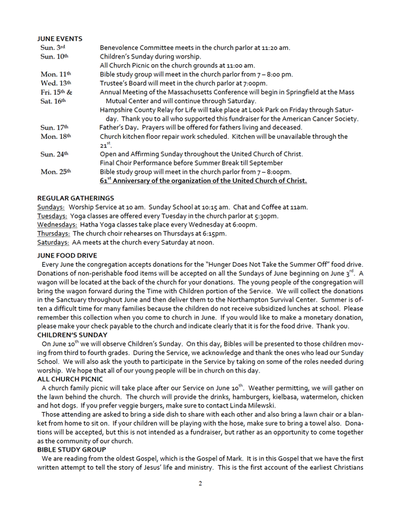
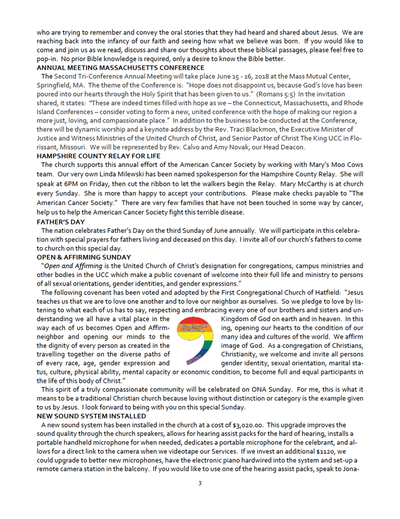
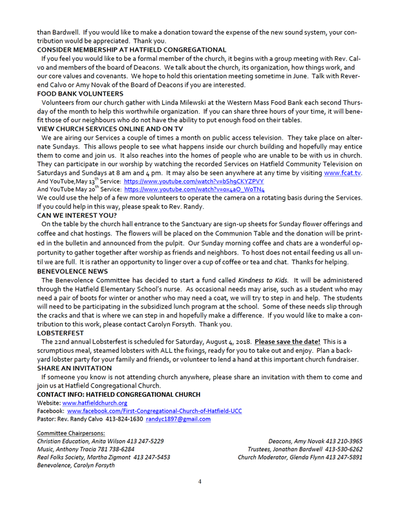

 RSS Feed
RSS Feed
